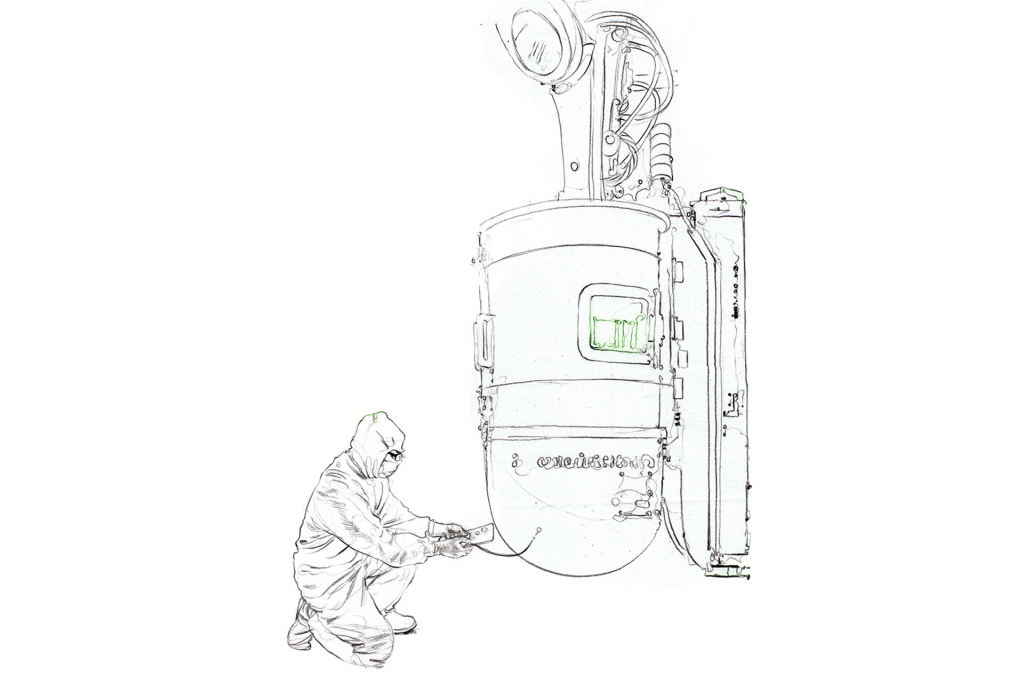Antibody generation appears like a vast and daunting field. Terms such as polyclonal, monoclonal antibodies and recombinant antibodies make it seem to be overly technical.
This will be a good read if you want to know what these terms mean, their differences, and how recombinant antibodies are made by cells in the lab. It’s worth it.
Polyclonal antibodies are a set of different antibodies that bind several epitopes on their antigen. Polyclonal antibodies are manufactured by injecting a host animal with the antigen, leading to an immune response.
The produced antibodies are harvested from blood after removing cellular constituents (erythrocytes, leukocytes), resulting in an antibody containing serum.
Subscribe to our Newsletter
Get all the latest updates, and learn about our advancements in antibody production.
Subscribe now
This product can be used either directly in assays as antiserum, or cleaned further for the production of pure polyclonal antibodies.
Purification is typically through means of immunoaffinity techniques or by transiently binding the antibodies to proteins A or G.
Polyclonal antibody production is a comparatively easy, inexpensive and fast process, yielding high affinity antibodies that are suitable for Western Blots, FACS, immunoassays and immunoprecipitation applications such as IP and CHIP.
Monoclonal antibodies (mAbs) originate from a single B-cell and bind one epitope on the antigen. They are produced by immunization of a host animal, usually a mouse.
When generated with the hybridoma technique, immunoglobulin producing cells are harvested from the spleen and fused with immortal myeloma cells.
The resulting cells (hybridoma cells) are grown and selected for immortality and monoclonal antibody secretion. Suitable hybridoma cells are then cultured either in vitro, or implanted into animal hosts to secure a consistent supply of mAbs.
Monoclonal antibodies exhibit high affinity and specificity for single epitopes and less likely to cross-react. While they can be produced in large amounts, the process is relatively slow, laborious and relies on the use of laboratory animals.

Recombinant antibodies are manufactured in vitro using engineered gene sequences in CHO cells. The process allows full control and optimization of the sequence to yield highly specific and very reproducible antibodies, superior to hybridoma derived products.
| Polyclonal antibodies | Monoclonal antibodies | Recombinant antibodies | |
| Reproducibility | low | Limited – dependent on cell line stability | Very high |
| Timeline | months | 0.5 – 1 year | At evitria: 5 weeks |
| Cost | low | Medium-high | Medium in development, low in production |
| Host animals | Mostly rabbit, goat, sheep | Mouse, rat, hamster | In vitro process |
| applications | Diagnostic applications (e.g. Western Blots, FACS, immunoassays, eetc.) | Therapeutic antibodies, diagnostic applications | Therapeutic antibodies, diagnostic applications |
When choosing the type of antibody, the end user has to consider his intended application, investment capabilities and timeline.
The generation of polyclonal antibodies is comparatively inexpensive and fast. If the intended application is more concerned with overall sensitivity over absolute specificity, then their affinities towards several epitopes of an antigen is an advantage (at the cost of increased background).
Downside of polyclonal antibodies is the reliance on laboratory animals, which leads to variability between batches and the antibody source has a limited lifespan.
Monoclonal antibody production needs larger initial investments in development and training of personnel.
The process is relatively laborious and time consuming, but yields antibody products of very high molecular homogeneity and specificity towards a single epitope.
Therefore, mAbs are the first choice for applications that require high selectivities and specificities, such as diagnostics and therapeutic antibodies. The latter rely on high selectivity to reduce side-effects mediated through off-target affinity.
One major disadvantage of monoclonal antibodies is the use of hybridoma cell lines that are prone to spontaneous genetic mutations, leading to alteration in the produced antibodies or outright loss of antibody expression capability.
Recombinant antibodies generally come with all advantages of monoclonal antibodies, such as high selectivity and homogeneity, suitable for diagnostic and therapeutic applications.
The use of in vitro methods over laboratory animals allows full control of the process and fine-tuning of the desired parameters.
One disadvantage of recombinant technology is the larger initial investment, but once established, it can quickly and reproducibly deliver antibodies in high quality.
The production of recombinant antibodies leverages advances in the fields of molecular biology and recombinant DNA technology, thus abolishing the use of animals as in the production of polyclonal and monoclonal antibodies.
One commonly used monoclonal antibody technique is phage display. This technique utilizes a vast pool of antibody fragment gene sequences (a “DNA library”) that are inserted into bacteriophages (virus that infect bacteria).
The phage vector infect suitable host bacteria and have them produce the antibody fragment encoded by the particular gene carried by the infecting phage. The antibody fragments are then displayed on the coatproteins of the excreted phage particles.
As the antibody genotype and phenotype are linked in the individual phage particle, this enables selection of specific candidates from vast antibody fragment libraries.
Next, the antibodies are screened and selected for their properties and the genes for the best antibody candidates are inserted into CHO cells for recombinant antibody expression in large quantities.